FIVE-STAR TEAM WARRANTY &
SAME-DAY SERVICE
Why Is My Air Conditioner Leaking Water
If you’ve ever asked yourself, “Why is my air conditioner leaking water?” — you’re not alone. This is a common problem during hot summer months, especially in areas where humidity and usage are high. In this blog, we’ll cover the most common causes, the signs to watch for, and what you can do to prevent further damage to your HVAC system.
AC Leaking Water Inside the House?
A leaking air conditioner — especially when your AC system is dripping water inside may seem like a small issue, but it can lead to water damage, mold, or even a full system shutdown. If you notice water dripping near your indoor unit, don’t ignore it. This is why you should take steps as soon as possible. But before we get down to solving the problem let’s discuss some common issues.
Clogged Drain Line
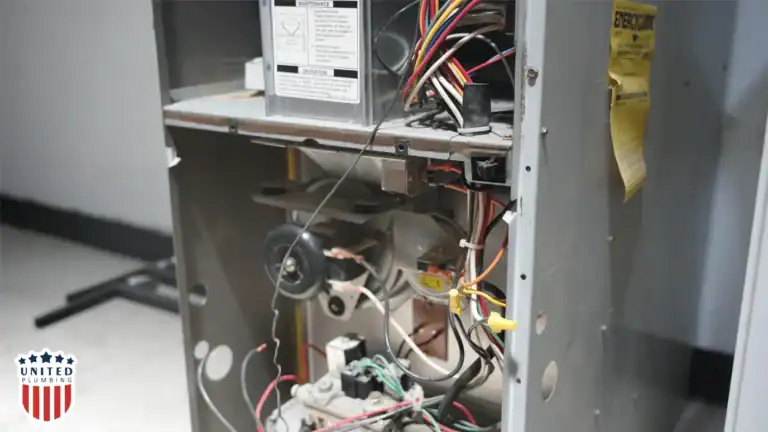
One of the most common causes of AC water leaks is a clogged condensate drain line or a disconnected drain line. Dirt and algae can block the drain pipe, causing excess water to back up and leak out of the drip pan.
Try flushing the line using a wet/dry vac—here’s a recommended option from Home Depot—or call for professional help if you notice persistent clogs.
Dirty Air Filter
A dirty air filter or clogged air filter can reduce proper airflow, which causes your evaporator coil to freeze. When the ice melts, it results in water overflow.
To prevent this, follow a routine regular maintenance schedule and replace your filters at least once every 1–3 months.
Low Refrigerant
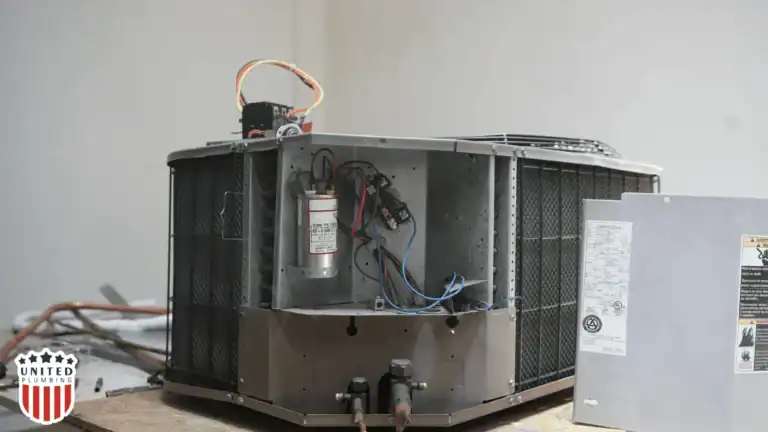
Low refrigerant levels or a refrigerant leak can cause a frozen evaporator coil, which leads to water leaks once the coil melts. Symptoms may include warm air coming from your vents or a hissing sound near your air conditioner unit.
This type of leak requires AC repair by a professional HVAC technician.
Rusted Drain Pan
Over time, the condensate pan or catch pan can start to rust or crack especially in older units. When you have a damaged drain pan, it won’t collect water droplets the way it should, which can cause leaks around the main unit and floor drain
Uneven Unit Placement
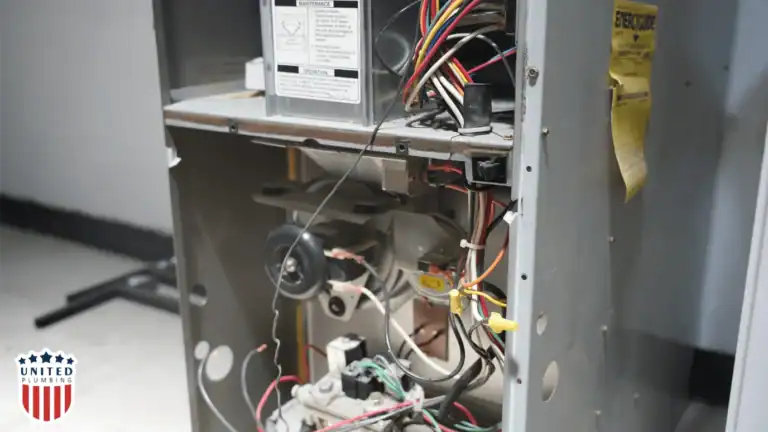
If your AC unit isn’t installed in the right place or is tilted, water flow won’t drain correctly and may pool inside. Improper installation is a common cause of water leakage in central AC systems.
If you’re dealing with an active leak, don’t wait. Contact our customer service team for fast, local emergency service. We’re here to protect your Indoor Air Quality, your comfort, and your investment.
Let’s be real — seeing water under your AC unit can feel stressful. It’s easy to think, “Is this normal? Or is something broken?” we made this blog to help with exactly that.
It walks you through the most common reasons your air conditioner might be leaking, like a clogged drain line or a frozen coil, and what you can actually do about it — without jumping straight to calling for repairs. But if it is serious, you’ll know when it’s time to call someone in.
It’s honest, clear, and written to make things easier, not harder. Hope it helps.
Post views: 704
Frequently Asked Questions
Is water leaking from the outdoor unit normal?
A: Some condensation around the outdoor unit is normal, especially on humid days. But excess water, puddles, or continuous dripping may signal a problem with the drainage system or improper unit placement.
Should I turn off my AC if it’s leaking water?
A: Yes — turning it off prevents further damage and gives the system time to defrost if there’s ice buildup. It also reduces the risk of electrical issues.
How often should I change my air filter to prevent leaks?
A: You should change your AC filter every 1 to 3 months, depending on your usage and whether you have pets, allergies, or live in a dusty area. A clean filter helps maintain proper airflow and prevent frozen coils.
How do I know if my AC has a clogged drain line?
A: Signs include water pooling around your indoor unit, musty smells, or a triggered safety shutoff. Flushing the line or using a drain line cleaning tool can help, but recurring clogs should be looked at by a pro.
Latest posts
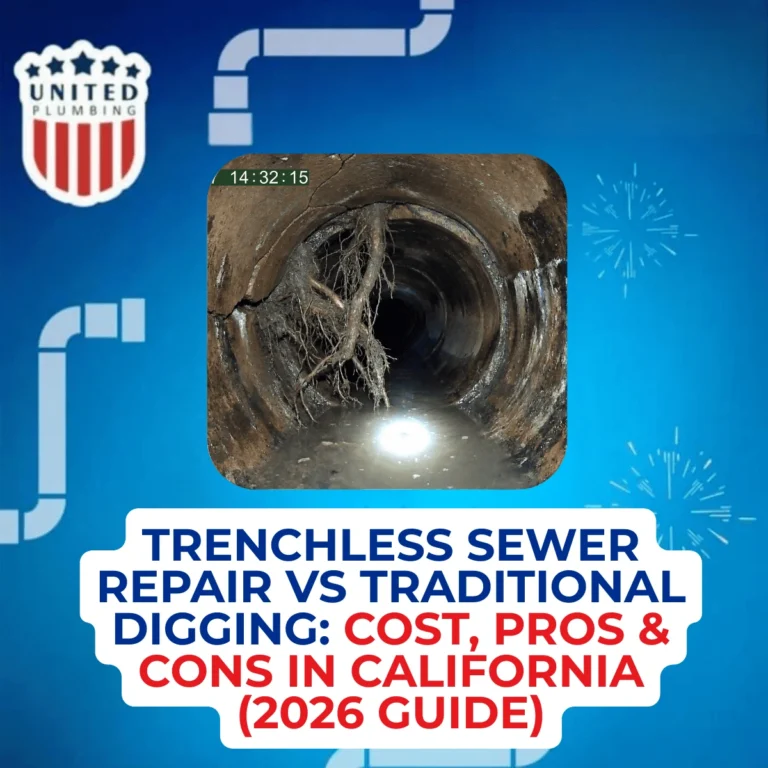
Trenchless Sewer Repair vs Traditional Digging: Cost, Pros & Cons in California (2026 Guide)
In California, trenchless sewer repair typically costs between $6,000 and $18,000, while traditional sewer line...
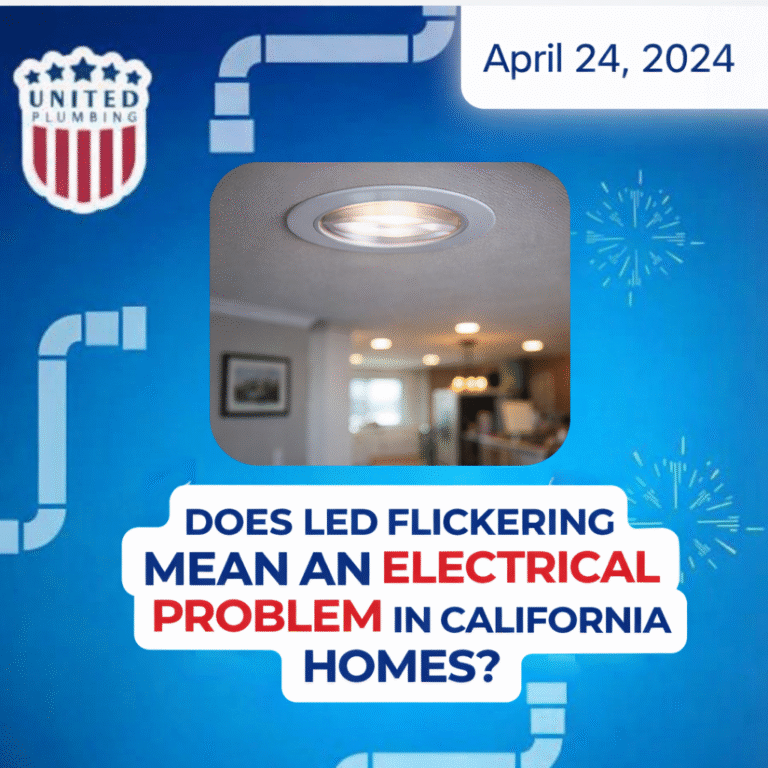
Does LED Flickering Mean an Electrical Problem?
What California Homeowners Need to Know
LED lights are popular in California homes because they use less energy...


If you still have questions or need advice, please leave a request and we will contact you as soon as possible
Need a plumber and got no clue where to start?
(408) 539-6936Facing a plumbing issue? Get a FREE in-person estimate and quick solutions from our skilled technicians, ensuring your home runs smoothly again!
